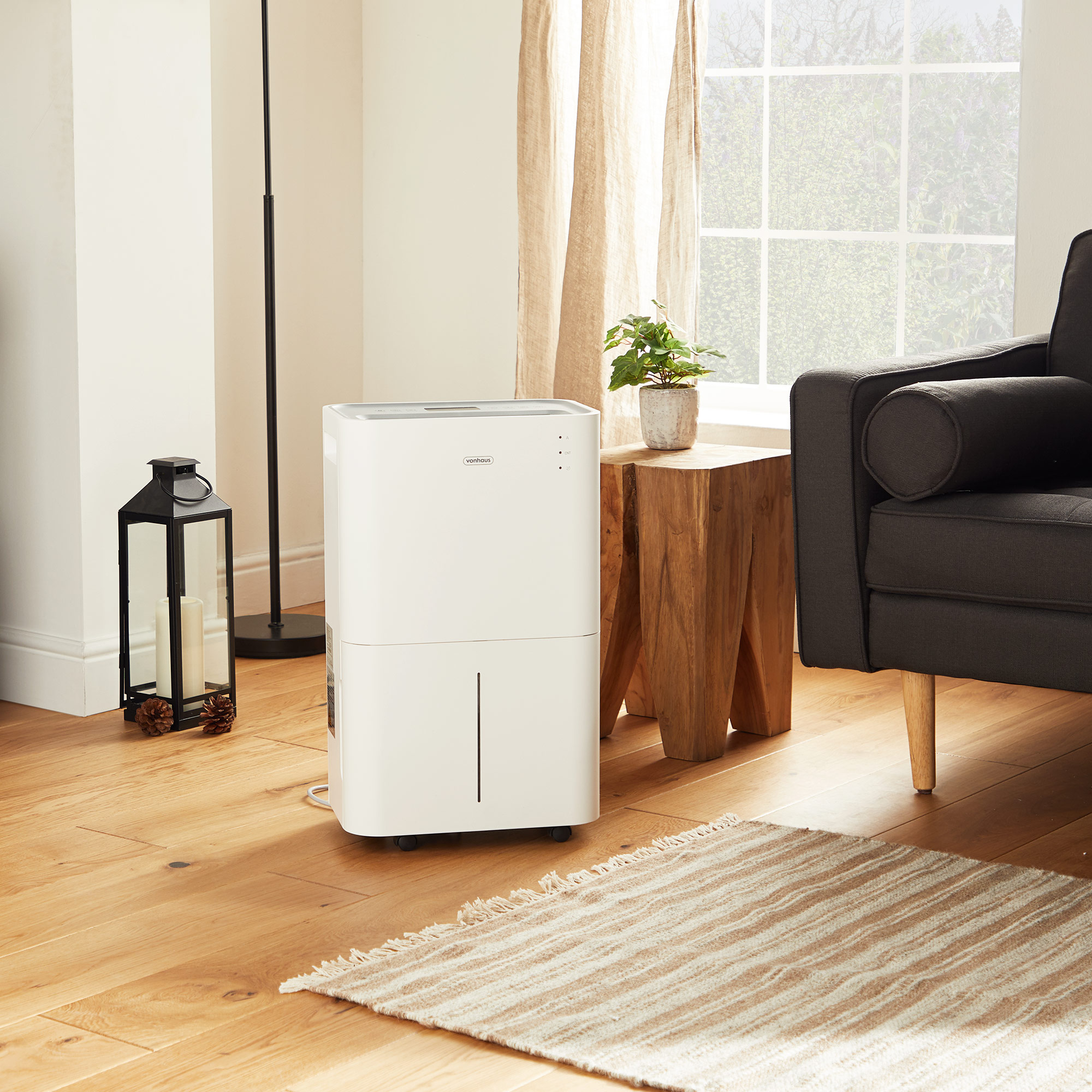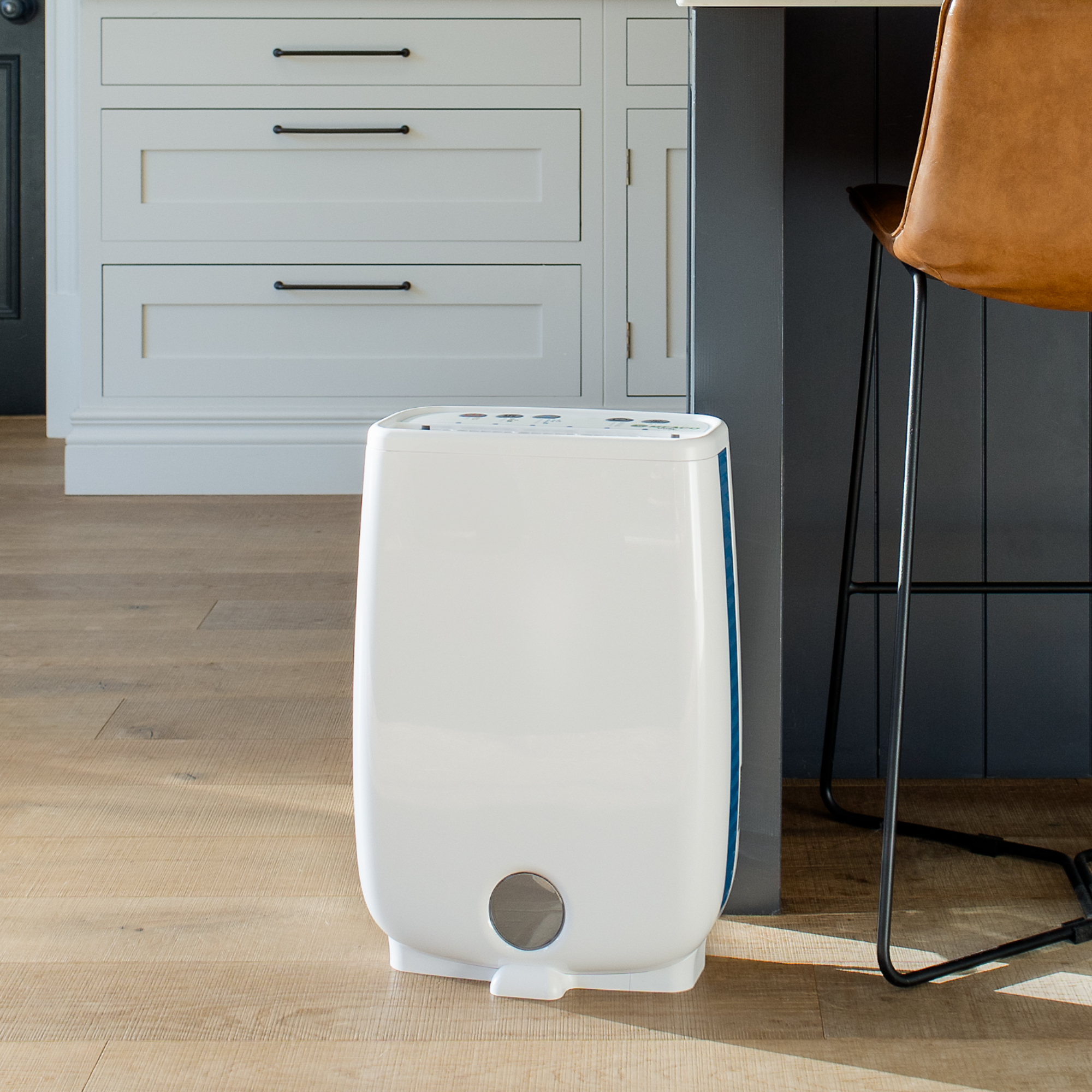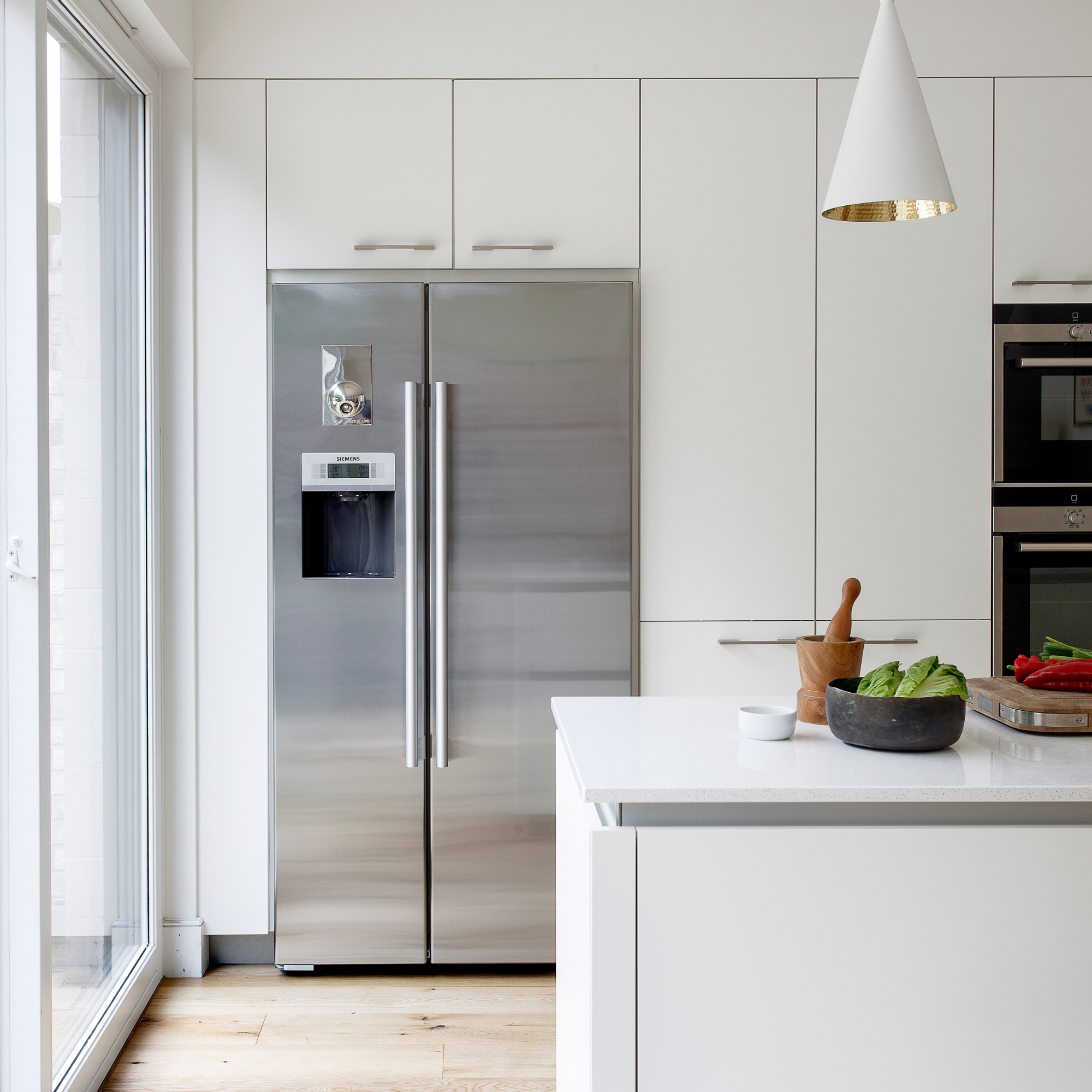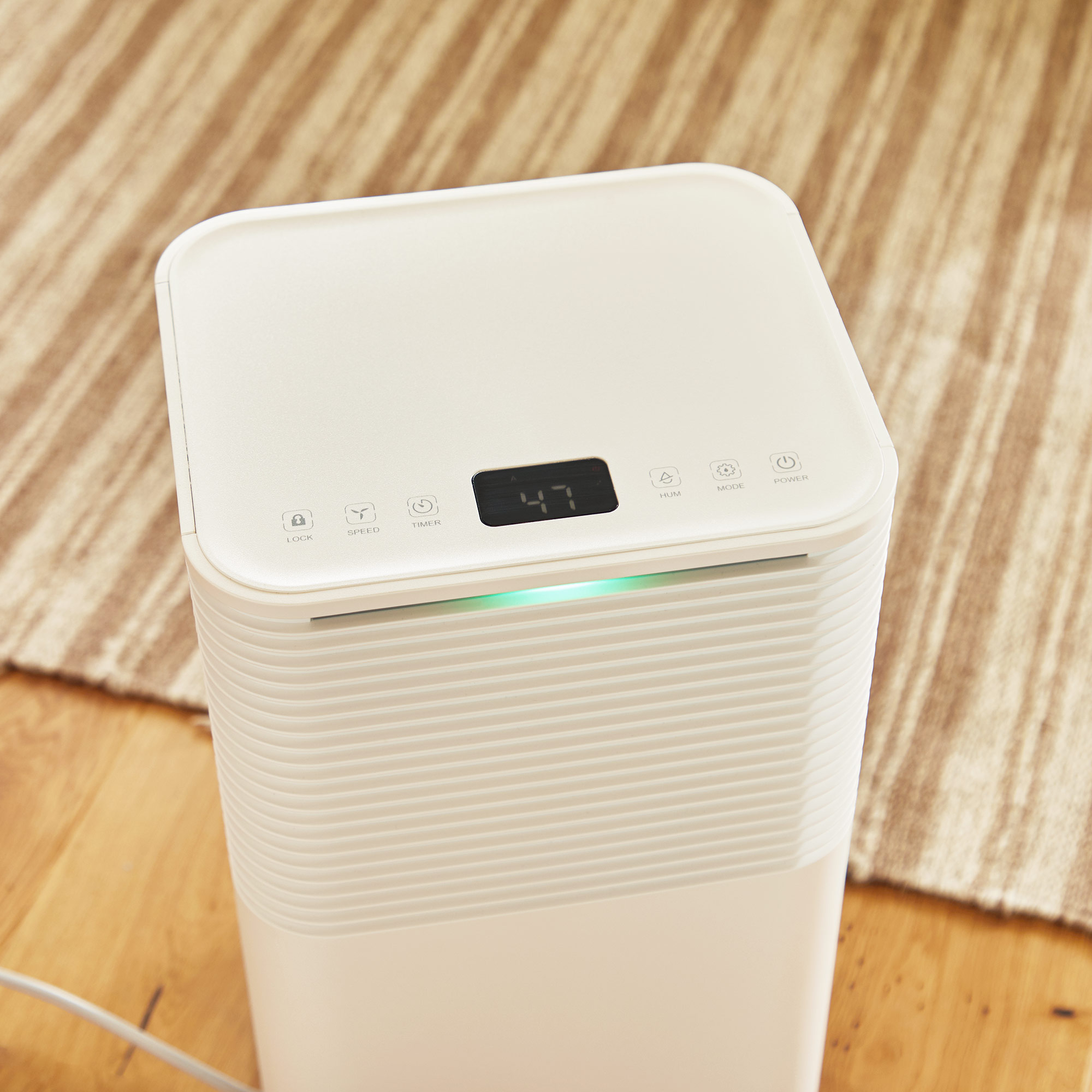
Kitchens are in a constant state of flux, from boiling water to steaming veggies, and washing dishes – all of which are notorious for adding extra moisture to the air. This can lead to condensation, unpleasant odours, and even warped cabinets overtime. As such, the knowing how to choose a dehumidifier for the kitchen is so important to combatting these issues effectively.
The right choice of dehumidifier can help prevent problems like mouldy food and foggy windows, but alas, it's not as easy as simply choosing the best dehumidifier on the market. There are a couple of considerations to be made if you're looking to tackle high humidity levels in your kitchen, once and for all. Therefore, to make the decision easier, we've asked the experts for their advice and come up with some top tips to make your appliance hunting even easier.
'Everyday activities generate excess moisture in the home, and opening windows will help to recycle the air,' explains Chris Michael, managing director of Meaco. 'However, when the temperature outside is too cold to let out precious warmth, households might want to consider using a dehumidifier.'
So, by learning how to choose the right dehumidifier for your kitchen, you can rest assured that you'll be getting rid of damp and maintaining a comfortable, dry space in the hub of your home all year-round.

1. Choose the best type for your needs
There are three types of dehumidifiers on offer in the UK, although compressor and desiccant are most commonly used in homes. While desiccant dehumidifiers certainly have their advantages, compressor dehumidifiers are considered to be a better choice for kitchens overall.
This is because compressor models are most efficient at an ambient temperature of around 20°C, and kitchens are often one of the hottest rooms in the house thanks to all the cooking and footfall they get on a day-to-day basis. Plus, their entry-level models can often be found for cheaper than desiccant alternatives – which is always a bonus.

2. Find the right capacity for your space
When choosing a dehumidifier for your kitchen, you need to first assess how much you use your kitchen. 'If you frequently cook or use appliances that generate a lot of steam, it’s worth opting for a larger capacity dehumidifier to ensure you can effectively reduce humidity in your kitchen,' explains Marc Duckworth, product manager for Russell Hobbs.
We'd suggest checking the humidity levels in your kitchen and buying a dehumidifier accordingly. If you use your kitchen on a regular basis, you'll need a dehumidifier that can handle the increasing moisture. If you have a small kitchen, you should be able to get away with a dehumidifier with an extraction rate of under 10 litres per day. If you have a larger kitchen, we'd recommend opting for 20 litres just to be safe.

3. Consider your usage
Although it’s important to maintain constant humidity in a kitchen, opening a window or turning on the extractor fan can work wonders if you want to keep dampness at bay in your kitchen. Because of this, it’s a good idea to consider how you will use a dehumidifier to see if it's better than an extractor fan or 'burping a home' in your case.
Weigh up whether you need a dehumidifier specifically for the kitchen or whether a portable dehumidifier with all-rounder qualities could work better. This way, you can use it elsewhere in the house and then take it into the kitchen when you need it.

4. Look into additional features
Dehumidifiers are becoming more and more impressive, with additional features being added to these appliances with each passing year – all of which are contributing more and more to the value of a dehumidifier in a home. Of course, these additional features can work in your favour when choosing the right dehumidifier for your kitchen.
'Some models come with HEPA filters that enable the appliance to cleanse the air of pollutants, helping prevent allergies. For removal of kitchen smells, consider using a charcoal filter,' explains Chris. In fact, these filters are particularly handy as removing odours is something a typical extractor fan can't do.
Not only that, but it might also be worth considering a dehumidifier with timers and Smart features to help streamline its use into your life even more.

5. Think about location
If you have a small kitchen, the idea of adding another appliance into the mix may cause you nightmares – especially if your countertops are already filled with other appliances. However, finding a place for this appliance isn't the only thing you need to consider, as the location of your dehumidifier for the kitchen can also affect its efficiency, causing you to fall foul to some dehumidifier mistakes.
'Place it as close to the centre of your kitchen as possible,' advises Peter Clayton from Trade Plumbing. Where this is in your kitchen will depend entirely on the size and layout of your room. 'If it is located too close to a wall or surface, it can often block the dehumidifier vents and reduce efficiency. In addition, if it is placed too close to a window, then humidity readings can be affected, which will negatively impact the effectiveness of the dehumidifier,' notes Peter.
Knowing the worst places to put a dehumidifier can therefore help you decide where best to place it.

6. Consider aesthetics and ease of use
Although dehumidifiers aren't complicated appliances to use, many modern dehumidifiers do come with numerous control panels and buttons – which not only affect ease of use but also how attractive they look. And, if you plan on using your dehumidifier while you're cooking, the last thing you want is for it to be a distraction.
'Consider how it will look in your kitchen, and look for a design-friendly model,' advises Chris. 'Are the controls simple to operate? Does it have a child lock to prevent little fingers from changing the settings?'

7. Take costs into account
Knowing how much it costs to run a dehumidifier will also help you choose the right dehumidifier for your kitchen. Of course, how much it costs you personally will depend on how often you use it, the wattage and unique specs of each appliance, and the price of energy as a whole. It's good to get a general idea of how much each option will cost you, though. After all, many people may be put off the idea of buying a dehumidifier for their kitchen because of this extra cost.
However, you'll be happy to know that some dehumidifiers cost as little as 1p per hour to run, and that's before we mention the fact that excess moisture in your home could cost you even more in maintenance costs further down the line.
The best dehumidifiers for a kitchen – our top picks
The MeacoDry Arete series has consistently been some of our favourite dehumidifiers, and the second iteration has introduced a timer and upgraded LED panel for ease of use. Its charcoal filters are brilliant for removing bad smells and lingering food odours from your kitchen.
Small and compact, the Pro Breeze 1500ml Mini Dehumidifier is perfect for those with a smaller kitchen and limited counter space. In our opinion, it's the best dehumidifier under £100 thanks to its low price and equally low running costs. You’ll just need to keep an eye on the water tank, as it is fairly small.
If you're after a more affordable compressor model, the ElectriQ 12L Dehumidifier has got you covered. Featuring an extraction rate of 12L per day and a built-in carbon filter for smells, it's perfect for those who use their kitchen on a very regular basis. It's not too large, though, which means that you should still find a space for it in your kitchen.
All in all, incorporating a dehumidifier into your kitchen can make a world of difference when it comes to tackling excess moisture, especially during the colder months. Now that you know how to choose a dehumidifier for the kitchen, from considering size, capacity, location, and more, you can confidently select a model that is the right fit for your space.
By making the right choice, you'll be protecting your home from high humidity levels whilst simultaneously making a smart investment for the long run.







